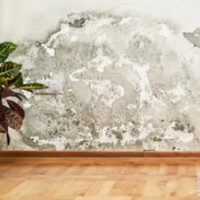Can You Sue Your Florida Landlord for Mold in Rental Apartment or House?

Although molds have been on our planet for millions of years, black mold in your apartment or house can cause health complications and illnesses. According to the Centers for Disease Control and Prevention, exposure to mold can trigger the following health effects:
- Skin irritation
- Nasal stuffiness
- Eye irritation
- Coughing or wheezing
- Infections in the lungs
- Respiratory problems
Humid and damp areas like Florida are mold-friendly environments, which makes it easier for this indoor air toxin to grow and spread anywhere where moisture and dirt are (inside walls, under carpets, and other damp areas).
Mold in Apartment or House: Landlord-Tenant Dispute or Personal Injury Lawsuit?
The last thing any Florida landlord wants to hear from their tenant is, “Listen, I think there is black mold in my apartment,” because preventing and removing mold is costly, complicated, and dangerous.
To prevent a potential landlord-tenant dispute, your landlord has an obligation to provide a safe, habitable, and sanitary environment. One of the duties is preventing and removing mold. Otherwise, the tenant may have a right to file a personal injury suit against their landlord to recover financial compensation for the illness, disease, or health complications caused by mold.
Learn more about your rights and obligations as a tenant or landlord in West Palm Beach or elsewhere in Florida by contacting Pike & Lustig, LLP. If mold caused health issues, speak with our West Palm Beach personal injury attorney to discover your legal options.
West Palm Beach Single Mother Fighting Her Landlord Over Mold
A recent mold-related landlord-tenant dispute in West Palm Beach has shed light on the legality of the issue. Last Tuesday, CBS12 News reported that a single mother living in a low-income complex in West Palm Beach was fighting her landlord over unsanitary living conditions.
Despite a test that detected high levels of mold in the single mother’s apartment in Madison Chase Apartments, her landlord ignored the problem. As a result, the woman’s daughter, a toddler, developed breathing problems.
The single mother has been living in the complex for almost three years. Her daughter was hospitalized three times due to respiratory problems, and the woman thinks mold is to blame.
There is No Statute Prohibiting Mold in Florida
Despite the high levels of toxins confirmed by a test from a certified mold inspector in West Palm Beach and visible signs of the mold in the vents, in the door, and behind the water heater, Palm Beach County code enforcement did not cite any violations during their own inspection.
When CBS12 News spoke to the director of Palm Beach County Code Enforcement, he explained that Florida used to have a statute prohibiting mold, but that is no longer the case. Robert Santos-Alborna said that “neither the state nor county not municipal government” addresses the problem of mold.
Therefore, the West Palm Beach single mother – like any other individual in a similar situation – has only one option left: to sue the landlord in civil court.
What Should You Do if You Find Mold in Your Rental Apartment?
So, what are your options if you find black mold in your rental apartment or house in West Palm Beach?
First and foremost, you should contact your landlord as soon as possible and notify him or her about the problem. Preferably, this should be done via letter or email, so there is a written record for the potential landlord-tenant litigation. (Learn more about commercial landlord-tenant laws in Florida).
If you have been suffering from health complications due to mold in your rental unit, see a doctor to document your illness or health problems. If a test from a certified mold inspection shows high levels of dangerous mold, you should consider bringing a personal injury lawsuit against your landlord.
Let our West Palm Beach personal injury lawyers at Pike & Lustig, LLP, help you hold your landlord responsible for failure or refusal to rectify the problem and pursue compensation for your health problems. Call our offices at 561-291-8298 or complete this contact form to receive a consultation.
Resource:
cdc.gov/mold/dampness_facts.htm
cbs12.com/news/local/county-not-able-to-issue-violations-for-mold-in-west-palm-beach-moms-apartment
https://www.turnpikelaw.com/how-pain-and-suffering-is-determined/



